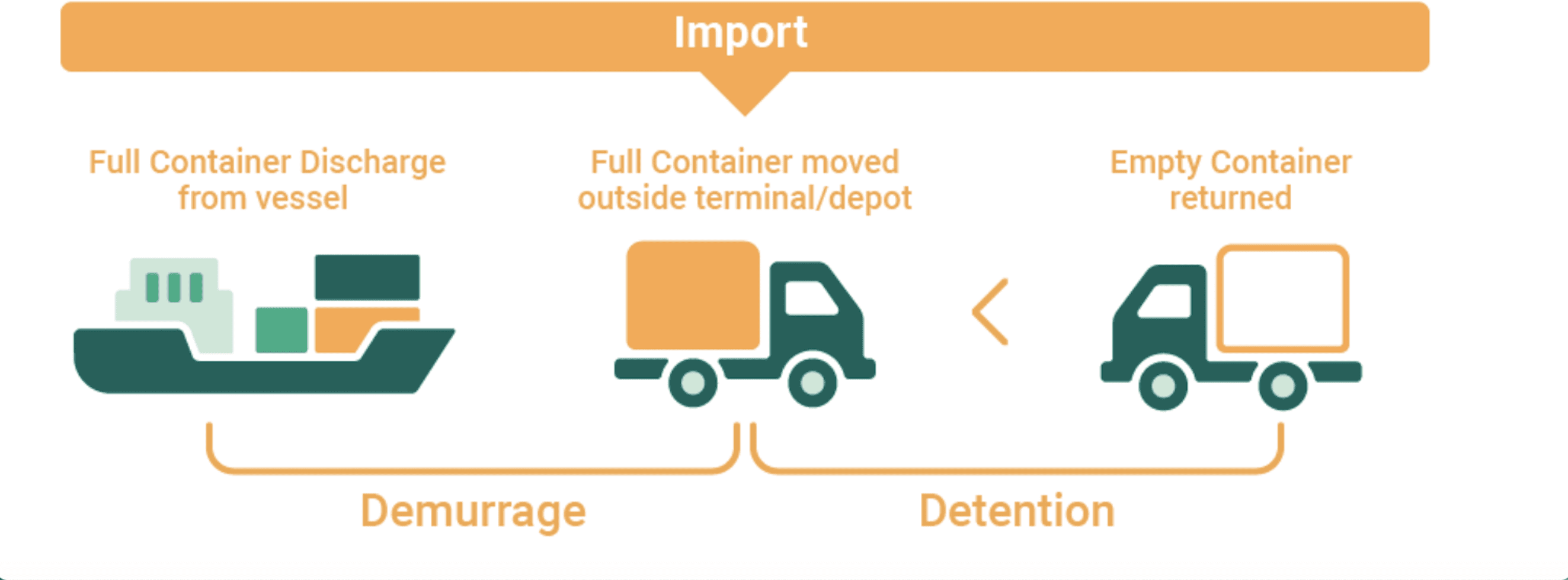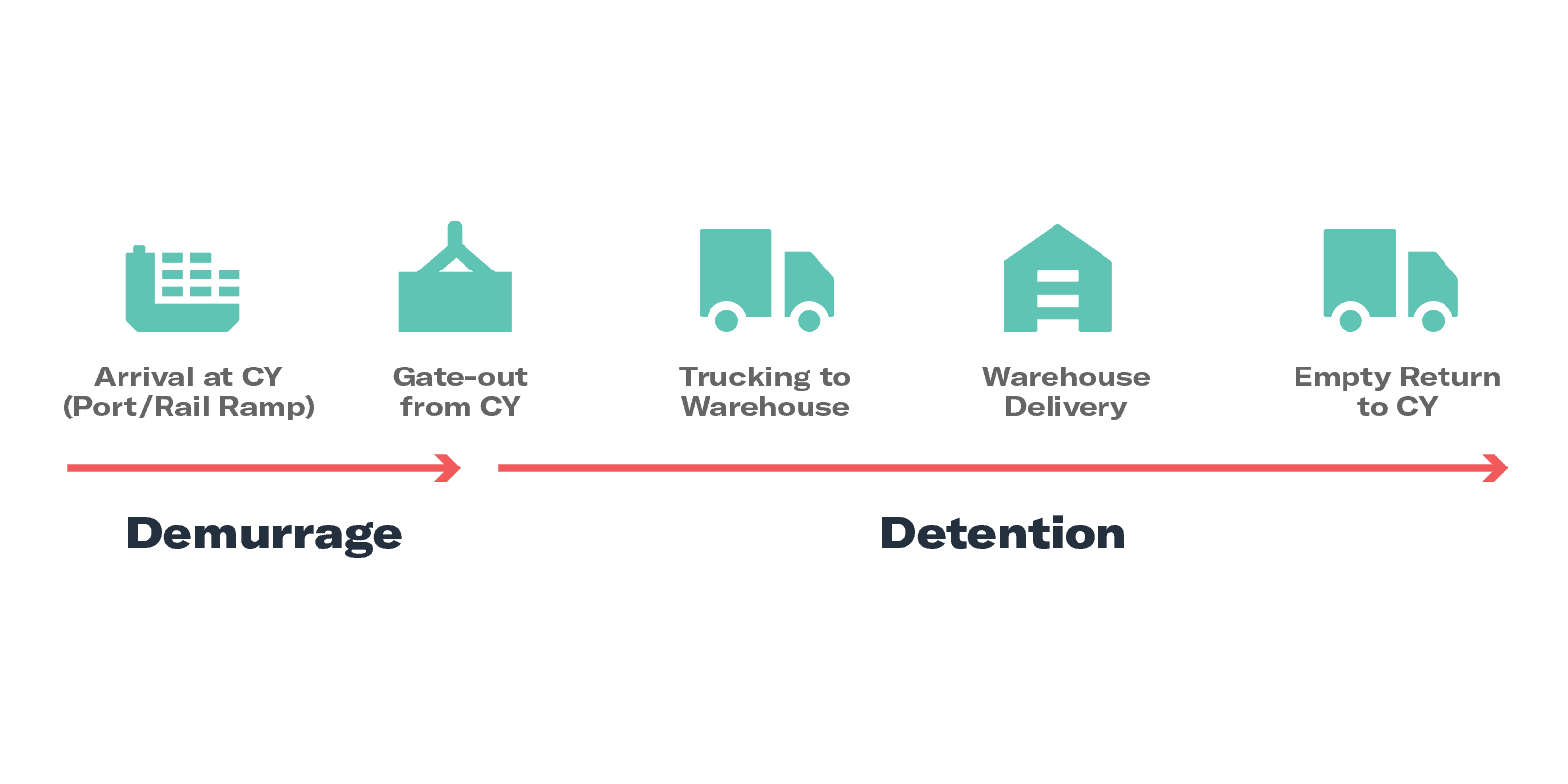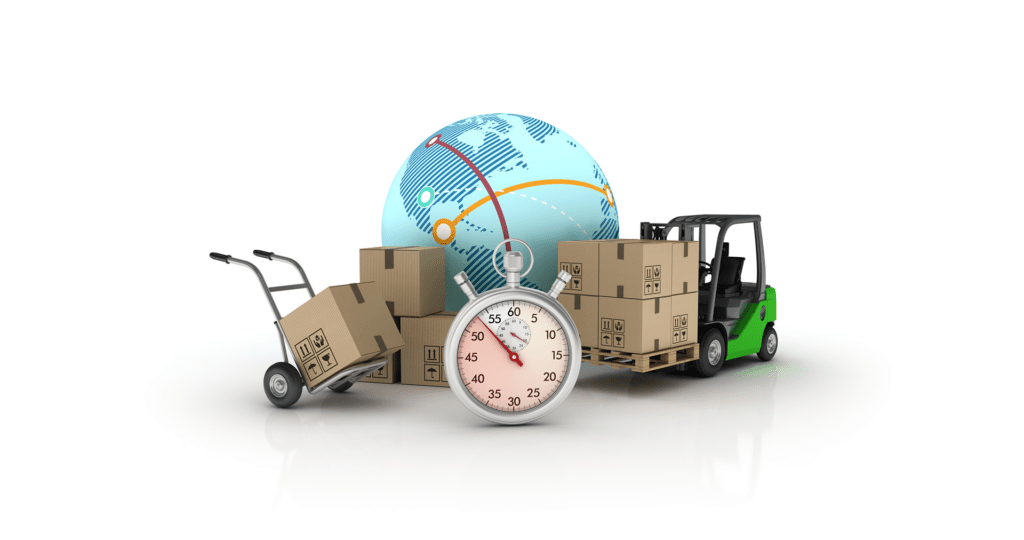Demurrage, Detention and Storage Fees are terms that often confuse people in Global Trade, Shipping, Freight and Logistics. They can also lead to several financial losses many a time. So, what is Demurrage and Detention, and how can you avoid these charges?
What is Demurrage?
Demurrage refers to costs incurred by a customer for using equipment when loaded cargo containers are left at the port terminal for longer than the allowed free time. Demurrage charges occur when containers are still full and under the control of the shipping line and have not been cleared through customs or picked up by the consignee.
Once the free time expires, you will be charged a daily fee for using equipment (container and/or chassis) until your cargo is removed. The charged amount will vary per location and equipment type.
When do Demurrage Charges commence and conclude?
- During the import phase, demurrage begins when the ship arrives at the port or after the container has been discharged.
- Ocean carriers decide on the starting date of the demurrage period, factoring in both the container’s type and location.
- Demurrage ends when the container is picked up from the terminal for delivery by truck, rail, or barge to the consignee.

What is Shipping Detention?
After a ship has been unloaded, there is ‘free time’ given to a consignee to offload the goods from a container and then return the container to the shipping company. If the free time allowed passes and the container is not returned, the consignee will be subjected to a fee known as Detention.
Simply put, container detention is applied when the cargo is picked up from the port but is not returned to the shipping line within the stipulated time.
What are Shipping Container Storage Charges?
Storage charges refer to the payment charged by the port to store containers at the terminal grounds, inside a warehouse or at the container yard beyond the allotted free days.
- Port storage fees are collected for full containers uncleared for import, full containers yet to be shipped for export and empty containers within the port.
- For both import and export, the storage cost period begins when the container enters the terminal or depot for storage and ends when it is taken out from the premises.
Why do Demurrage and Detention Charges Occur?
Demurrage and Detention Charges are used as an incentive to return the equipment or free up storage space as quickly as possible.
- The purpose of detention charges is to compensate the shipping company for the use of their containers.
The high price of the containers coupled with the container shortage makes it essential for the shipping lines to ensure a quick turnaround time for their containers.
- Demurrage and Storage charges help clear up port space. Since most ports have limited storage available, they require the customers to move their cargo out of the port’s storage facilities as soon as possible.
- Levying a port storage charge helps avoid port congestion by charging for delays. In addition, it compels the consignee to clear all the documentation and take the delivery of the container quickly, freeing up port space.

Demurrage, Detention, and Storage Free Time: When does the Clock Starts Ticking?
- A certain number of free days are granted to customers before any Demurrage, Detention or Storage Cost is charged to them.
- Detention and Demurrage fees are billed per container and per day.
- The exact number of free days depends largely on the location and selected ocean carrier but is also influenced by the equipment and facility type. In some warehouses, no free time is allowed at all.
- While these charges cannot always be avoided, they can be significantly reduced with coherent planning and proactive communication.
Factors that lead to Demurrage, Detention, and Storage Charges:
- Situations beyond your control, including port congestion, shortage of trucks or equipment, bad weather or labour issues.
Delays due to Customs Clearance. This could involve a situation where customs hold up the goods for inspection.
- Delay in documentation or loss of documentation.
- Error in documents or incomplete documents. Amending the faulty document involves several days, which often leads to detention.
- The late release of containers at the destination. There are times when the carriers do not release the shipment because of payment related issues.
Tips to Reduce Demurrage, Detention, and Storage Charges:
- Ensure your cargo is ready on time to reduce these charges.
- Use the expertise of a Freight Forwarder.
- Ask for Demurrage and Detention fees as well as Storage Costs included in your quotation.
- Negotiate terms – question how many free days you are granted.
- Communicate proactively.
Summary:
- Demurrage is charged while the container is still at the port.
- Detention is charged outside the port no matter full or empty.
- Storage fees are charged to store containers at the terminal grounds, inside a warehouse or at the container yard beyond the allotted free days.
- When a customer holds containers longer than the agreed free time, Detention charges will be levied.
- Example Scenario –
- Imagine that a shipper or consignee has seven ‘free’ days once their container arrives at a port before they need to collect their cargo. If the consignee does not pick up the cargo within the ‘free time’ period, then every day after, you can be charged Demurrage by the day.
- Once the shipper/ consignee collects their cargo, there is a designated timeframe by which the container must be returned. If the consignee is unable to return the equipment within the allowed ‘free’ timeframe, every day after, you can be charged Detention by the day.
Still confused? Watch this video explaining the Demurrage and Detention charges in Shipping.
Still need information on Demurrage and Detention charges? You’ve come to the right place. Book a Free Consultation with our Gava Australia Team.
We will explain what is left unsaid about Demurrage and Detention charges to help you avoid any surprises or disappointment and answer any additional questions you have.
Further Demurrage and Detention information we will provide you with will include:
- The specific number of ‘free’ days you can acquire
- How to avoid Demurrage and Detention charges
- Additional suggestions and tips on Demurrage, Detention, and port storage Charges












